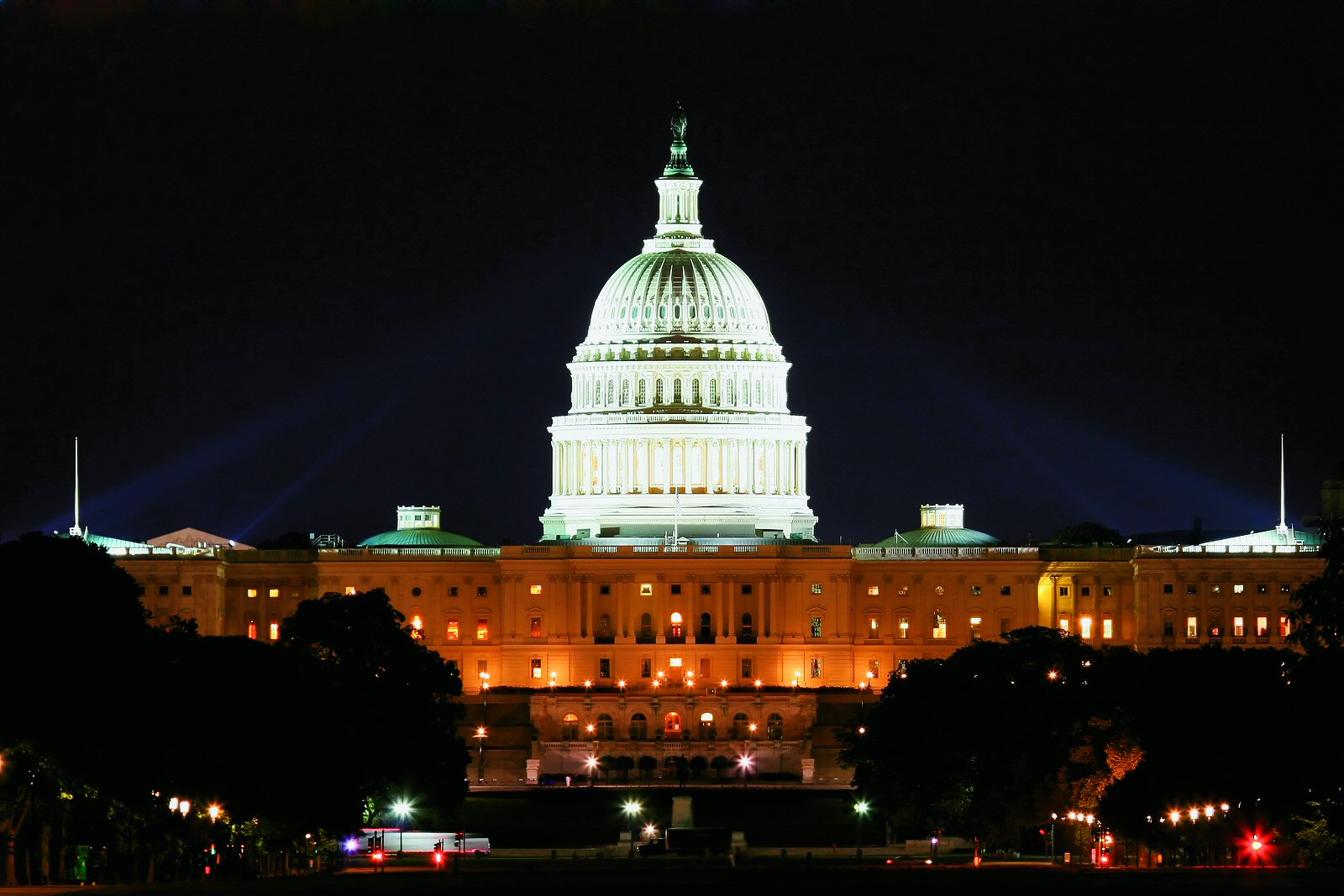Public Policy Analysis & Opinion
By Kevin P. Hennosy
TRUMP COMPLETES ROOSEVELT’S VISION?
The Competitive Health Insurance Reform Act of 2020 partially repeals McCarran-Ferguson to enforce it
In the waning days of Donald John Trump’s presidential administration, he signed historic insurance legislation: The Competitive Health Insurance Reform Act of 2020 (CHIRA). The act amends the McCarran-Ferguson Act of 1945 by realigning the treatment of health insurance, including dental insurance, under federal law.
The new law does not preempt state regulatory systems.
When reviewing the legislative history of both federal statutes, it becomes clear that the focus of the 2020 act clears the way for federal antitrust review of mergers and acquisitions that integrate medicine, pharmacy, and healthcare financing into a single sector.
Journalists adopted the phrase “the act repeals health insurers’ federal antitrust exemption” as a shorthand description of CHIRA.
The act of 2020 amends the McCarran-Ferguson Act of I945 by realigning the treatment of health insurance, including dental insurance, under federal law.
Regular readers of this column will know that description lacks precision because the 1945 act did not provide an “antitrust exemption.” The law provided a division of labor between the federal and state levels over interstate commerce conducted with some very localized activities.
What it means
Apart from a three-year moratorium on the application of federal antitrust law on the insurance sector in the late 1940s, commentators misapplied the term antitrust exemption to the McCarran-Ferguson Act.
McCarran-Ferguson never transferred jurisdiction from the federal government to the several states and territories over instances of anticompetitive acts “of boycott, coercion, or intimidation.”
Furthermore, the act retained jurisdiction for the U. S. Justice Department Antitrust Division and the Federal Trade Commission (FTC) over the “business of insurance” where not regulated by state law.
The assumption in Congress at the time the McCarran-Ferguson Act passed was that states would subject insurance to state antitrust oversight. In addition, the states would act to apply expert review on insurance products, marketing, and pricing.
These activities, if conducted by the states, withheld federal antitrust and fair-trade enforcement, but they did not prohibit federal antitrust oversight. The 1945 act also provided for direct federal enforcement if the several states failed to conduct those regulatory activities.
Just as the U. S. Constitution provided for a sliding scale of jurisdiction between state and federal levels, so did the McCarran-Ferguson Act allow insurance activities to move between state and federal oversight. The CHIRA realigns that sliding scale of jurisdiction to a setting closer to the original intent of the 1945 act.
ACA repeal
The removal of the McCarran-Ferguson framework came at the end of the last presidential administration, but the effort began at the beginning of that term of office.
In January 2017, when Mr. Trump and his party took control of the White House and both chambers of Congress, observers believed that the Affordable Care Act of 2010 would be repealed and replaced.
Many advocacy groups wanted to plan for that expected change to federal healthcare policy and try to shape a replacement framework. The American Dental Association (ADA) is one of the more influential interest groups that responded to the probable outcome.
The ADA did not oppose the repeal of the ACA, but the group wanted to maintain the financial support for dental health, which also financially benefited the association’s membership.
ADA goals
On January 11, 2017, the ADA posted letters to members of the House and Senate urging Congress to repeal the McCarran-Ferguson Act, as it then applied to the health insurance sector. Both letters note that the ADA did not want to see ACA repeal result in a reduction of dental insurance coverage that the 2010 law fostered.
The 2017 ADA letters explained: “The ADA believes that any changes to the insurance marketplace should foster competition while establishing minimum standards for such competition.”
In addition, the ADA letters opined: “Any alternative replacement legislation should interject more competition into the marketplace by authorizing greater federal antitrust enforcement in instances where state regulators fail to act.”
This proposal focused on the health insurance sector, including dental insurance. Previous calls for repealing the McCarran-Ferguson Act addressed the entire act, like one that passed the House of Representatives in 2009.
In 2017, U.S. Representative Paul Gosar (R-Ariz.), a dentist, introduced legislation. The bill quickly, within months, secured passage in the House. The legislation lingered and died in the U.S. Senate.
20I9 sponsors
After Democrats regained the House of Representatives, bipartisan sponsors in the House and Senate reintroduced the CHIRA.
On February 28, 2019, Reps. Peter DeFazio (D-Ore.) and Paul Gosar introduced the Competitive Health Insurance Reform Act, H.R. 1418. The sponsors released a joint statement that described their bill as a mechanism to repeal “the antiquated exemption that allows the health insurance industry to operate beyond the reach of federal antitrust laws.”
“It is preposterous that this anti-free-market exemption is still on the books,” DeFazio said, at that time.
This effort was not Rep. DeFazio’s first effort to amend or alter the McCarran-Ferguson legal framework. In 2009-2010, DeFazio successfully included the provision to end the entire insurance industry’s antitrust exemption in the House-passed version of the ACA bill. The Senate stripped that provision from the final bill.
Representative DeFazio continued, “This exemption gives insurance companies the power to collude to drive up prices, limit competition, conspire to underpay doctors and hospitals, and price gouge consumers. Congress needs to act in order to rein in skyrocketing healthcare costs.”
Furthermore, DeFazio opined: “Not only will this legislation protect consumers, it will ensure the health insurance industry is subject to the same rules as virtually every other industry.”
Representative Paul Gosar delivered a statement that focused on the positive power of market competition. “As a healthcare provider for more than two decades, I understand the importance of a competitive health insurance market,” said Gosar.
“There is no reason in law, policy, or logic for the insurance industry to have special exemptions that are different from all other businesses in the U.S.,” concluded Representative Gosar.
Senators Patrick Leahy (D-Vt.) and Steve Daines (R-Mont.) introduced identical legislation in the upper chamber.
AHIP and NAIC
America’s Health Insurance Plans (AHIP) and the National Association of Insurance Commissioners (NAIC) both delivered arguments against the CHIRA.
In 2017, AHIP stated, “To understand why repeal of the McCarran-Ferguson antitrust exemption would produce no benefit for consumers, it is helpful to begin with what the antitrust exemption in the Act does not do … . In short, it does not allow health insurers to violate antitrust laws, prevent health insurers from being extensively regulated at the federal and state level, or stand in the way of competition within or across states.”
On December 22, 2020, the AHIP released a statement from Matt Eyles, president and CEO of the association, that included the following observation: “Removal of this exemption adds tremendous administrative costs while delivering absolutely no value for patients and consumers. It will unnecessarily add layers of bureaucracy, destabilize markets, create conflicting federal and state oversight requirements, and lead to costly litigation.”
In a December 2, 2020 letter to the congressional leadership, the NAIC stated:
The premise of the Competitive Health Insurance Reform Act is that collusion among health insurance companies is permitted under state law and that the McCarran-Ferguson Act somehow currently protects these practices. This is not true. The McCarran-Ferguson antitrust exemption for health insurance does not allow or encourage conspiratorial behavior but simply leaves oversight of insurance, including health insurance, to the states—and state laws do not allow collusion.
Competition
In 1945, Conservative Democrats and Republicans attempted to simply exempt the business of insurance from antitrust oversight. This approach never garnered congressional majorities.
The Roosevelt Administration, state governments, independent insurance agents and mutual insurance companies opposed that effort. States sought to preserve a claim to authority over the insurance sector as a means of maintaining premium tax revenue. Independent agents and mutual insurers sought to preserve the state-by-state system while still breaking the old insurance cartels that stock insurers dominated.
The Roosevelt Administration viewed insurance as too complex for consumers to employ the informed choice necessary for competitive markets. The administration filed the antitrust suit that prodded the Supreme Court of the United States (SCOTUS) to rule that insurance is interstate commerce; therefore, subject to federal jurisdiction—including antitrust law.
The administration supported the McCarran-Ferguson Act to impose a temporary moratorium on the application of federal antitrust law, while the states adopted more uniform consumer protection laws.
Roosevelt
The CHIRA act of 2020 reflects the views of Franklin Roosevelt more than the most often expressed misinterpretation of the McCarran-Ferguson Act—an antitrust exemption.
In 1944, after the SCOTUS ruled insurance is interstate commerce, Roosevelt began a series of communications concerning the matter with his former boss at Fidelity and Deposit Insurance of Baltimore, then Senator George Radcliffe.
In one letter, Roosevelt explained that he saw “no conflict between the application of the antitrust laws and effective State regulation of insurance companies, and there is no valid reason for giving any special exemption from the antitrust laws to the business of insurance. The antitrust laws prohibit private rate fixing arrangements between insurance companies and acts of boycott, coercion, or intimidation. The antitrust laws do not conflict with affirmative regulation of insurance by the States such as agreed insurance rates if they are affirmatively approved by State officials.”
When Roosevelt signed the McCarran-Ferguson Act into law, he issued a signing statement where he observed: “After the moratorium period, the antitrust laws and certain related statutes will be applicable in full force and effect to the business of insurance except to the extent that the states have assumed the responsibility, and are effectively performing that responsibility, for the regulation of whatever aspect of the insurance business may be involved.”
Everything old is new again—at least regarding health insurance?
The author
Kevin P. Hennosy is an insurance writer who specializes in the history and politics of insurance regulation. He began his insurance career in the regulatory compliance office of Nationwide and then served as public affairs manager for the National Association of Insurance Commissioners (NAIC). Since leaving the NAIC staff, he has written extensively on insurance regulation and testified before the NAIC as a consumer advocate.






